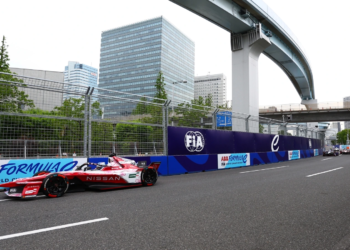Introducing a cost cap in Formula 1 is essential for prospective new entrants, according to the championship’s CEO Chase Carey.
Formula 1 has long strived to introduce a limitation on spending and from 2021 teams will begin to be restricted, with a $175m ceiling – albeit one that does not include elements such as driver salaries, marketing and engine costs – to be implemented.
Formula 1’s new-for-2010 teams were partly enticed into the championship on the promise of a budget cap that ultimately never materialised, and all dropped out of the sport without challenging for top positions.
The championship’s only new entrant since – Haas – has used the regulations to align itself closely with Dallara and Ferrari in order to operate with the lowest headcount and one of the smallest budgets.
Carey is adamant that the introduction of a cost cap, which is now favoured by teams after initial scepticism, can entice new entrants.
“It is important we create a cost cap that supports a business model that is healthy and growing and positive for existing teams and potential new teams coming into it,” said Carey.
“We’ve had discussions with potential new teams.
“All have looked at sort of steps in terms of cost discipline and a more balanced revenue distribution as probably cornerstones to creating what they think is an exciting opportunity so certainly that is a part of it.
“We feel quite positive about where we are with the cost cap, in many ways teams, some of whom had concerns or issues going in, are increasingly supportive.”
Carey also revealed that a “dry run” will be undertaken in 2020 in order to ensure the correct mechanisms are in place for its introduction in 2021.
“We are going to use 2020, all the teams will participate in effectively a dry run as the cost cap won’t actually be enforced with consequence until 2021,” he said.
“In 2020 what we are going to go through is shaking out the bugs of accounting for the costs.”
On alleviating concerns that teams could navigate their way around a cap, Carey asserted: “We wouldn’t have done it if we didn’t think it was enforceable.”






